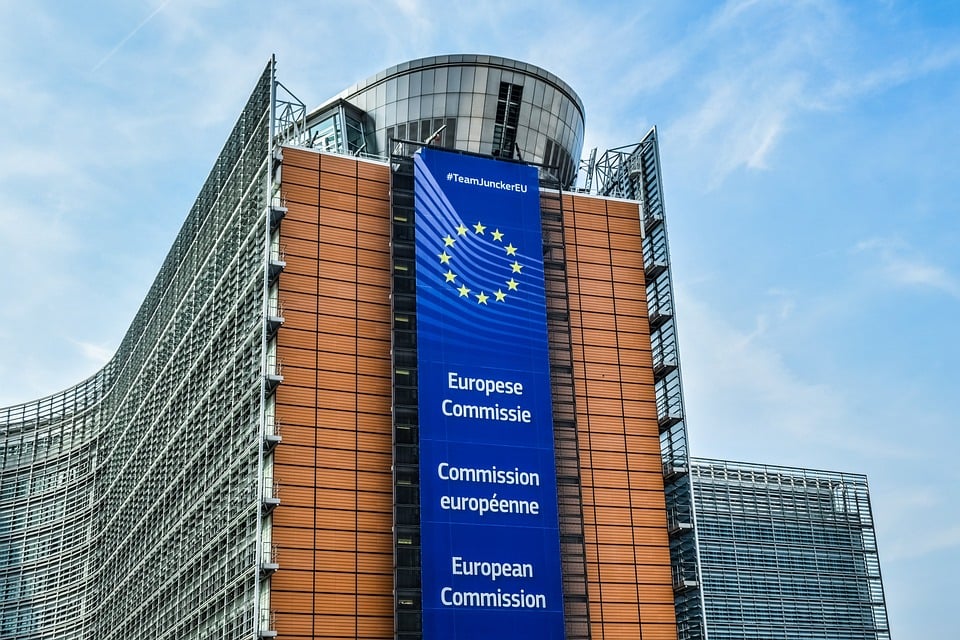Save
William Lewis, a reporter-turned-executive who spent years working in British media and for Rupert Murdoch-owned companies, has been named the CEO and publisher of The Washington Post.
As CEO of Dow Jones and publisher of the Wall Street Journal from 2014 to 2020, Lewis was credited with increasing the Journal’s digital subscriber base.
In an email to staff late Saturday, Post owner Jeff Bezos cited Lewis’s background as both a journalist and executive in making him a “strong fit” for the job.
“As I’ve gotten to know Will, I’ve been drawn to his love of journalism and passion for driving financial success,” Bezos wrote. “Will embodies the tenacity, energy and vision needed for this role. He believes that together we will build the right future for The Post. I agree.”
After leaving Dow Jones, Lewis, 54, co-founded the News Movement, which focuses on delivering nonpartisan news to younger audiences on TikTok, Instagram, YouTube and other social platforms.
Before that, he had a long career in England, working first as a business reporter and editor and then as chief editor of The Daily Telegraph.
In 2010, he joined the Murdoch-owned News Corp. and the following year was tasked with helping to run a committee created to address the company’s phone-hacking and police bribery scandal — the fallout of which led to criminal charges and the closure of the News of the World tabloid.
Lewis takes over during a tumultuous time for The Post, which has experienced a drop-off in both audience and subscribers. Executives are offering buyouts across the company in an effort to reduce its head count by about 10 percent; the newsroom is expected to shrink to about 940 journalists, and The Post is projected to end the year taking a $100 million loss.
He replaces Fred Ryan, who stepped down earlier this year after overseeing most of The Post’s decade of rapid growth since it was purchased by Bezos, the founder of Amazon.
During Ryan’s tenure, The Post’s audience and newsroom expanded — a period that largely coincided with the supercharged Trump administration news cycle.
But like much of the media industry, The Post saw its business decline after Trump left office and the pandemic subsided.
Lewis left Dow Jones around the same time. During his tenure, the Journal tripled its digital subscribers to 1.93 million and the company boosted revenue through elite business offerings, the newspaper reported at the time.
In 2011, he was accused of playing a role in the leak of an audio recording that had been obtained by his former colleagues at the Telegraph but given to the BBC, which then managed to land a bombshell story divulging a Cabinet secretary’s private comments about Rupert Murdoch.
Lewis denied the accusations but declined to answer questions about the scoop during a judicial inquiry, citing the need to protect sources. In 2020, he denied accusations that he played a role in concealing emails about the hacking scandal, calling the charges made in a lawsuit “completely untrue.”
The search for Ryan’s replacement was headed up by interim CEO Patty Stonesifer, the founding chief executive of the Gates Foundation and a former high-ranking Microsoft executive who sits on the Amazon board.
Emily Bell, who heads the Tow Center for Digital Journalism at Columbia Journalism School and competed against Lewis when she led The Guardian’s digital news operation, described him as “very much a journalism-focused publisher.”
She said that the years Lewis spent working for Murdoch “means a certain amount of steel enters your soul.” She added — in reference to his dealing with Murdoch as well as his future relationship with Bezos — that Lewis’s “super power, though, is being unbelievably good with very, very rich people.”
Lewis begins the job Jan. 2. He splits his time between New York and London, and will be moving to Washington, where The Post is headquartered.
Lewis was editor of the Telegraph when Boris Johnson wrote for the paper and reportedly served as an informal adviser to the former prime minister. Last month, he was knighted at Johnson’s recommendation. Asked in September about his relationship with Johnson, who resigned from Parliament in June, Lewis told Bloomberg News he’s not a “fair-weather friend.”
“If I’m your friend, and even if you make mistakes, even if you end up doing things that I fundamentally disagree with, I don’t walk away.”




